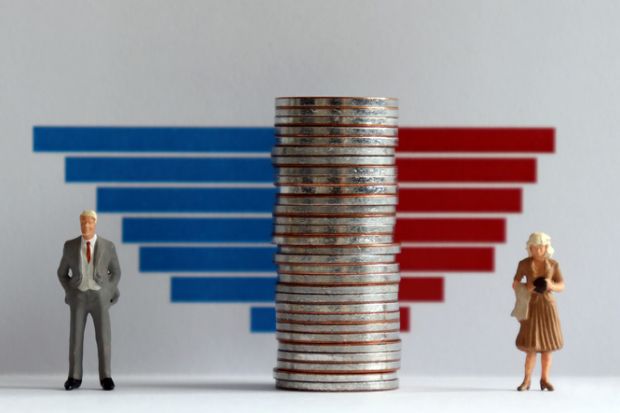The gender pay gap among academic economists in the UK has barely shrunk over the past two decades, according to a new study.
Research presented at the European Economic Association’s conference on 27 August found that female economists were paid significantly less than their male counterparts, even when they were in the same role.
According to the survey of 543 academic economists, men in the discipline earned 15 per cent more than women. This reduced slightly when the fact that male economists are typically older was considered, but the “unexplained” pay gap was 12.7 per cent.
Authors Karen Mumford and Cristina Sechel found that about half of the remaining gap was explained by women being less likely to be in senior roles: they represent around 35 per cent of economics lecturers, but only 16 per cent of professors.
But female professors were paid 11.5 per cent less than their male counterparts. The pay gap was significantly wider than at lecturer level, where it was 4.9 per cent. Across the board, women were not found to be significantly less productive or qualified.
Professor Mumford and Dr Sechel, from the universities of York and Sheffield, found that the gender pay gap was largely unchanged since similar studies were conducted two decades ago. Over the same period, the number of women employed in the discipline has increased significantly.
Professor Mumford said that despite the shrinking of the UK-wide gender pay gap over the last 20 years, “it has stayed the same for academic economists”.
While at the turn of the millennium the gap was driven by women being concentrated in the rank of lecturer, it was now due to women being “much less likely to be promoted to the high-paying professorial rank and also there being a large gender pay gap among professors”, Professor Mumford said.
The main reason for the gap “appears to be discrimination”, with men getting “higher rewards in terms of promotion to professor and pay as professors for the same characteristics as women”, according to Professor Mumford, professor of economics at York.
Interestingly, while men and women reported similar average teaching evaluation scores, men who rated themselves as excellent teachers earned 8 per cent more than other men, while women who described themselves as excellent teachers earned 10 per cent less than other women.
“Women tend to pick up more teaching than men do and this would suggest that actually that’s really going against them in terms of pay,” Professor Mumford said.
Professor Mumford said that universities should consider holding individual pay reviews for professors, and urged promotion committees to be “very careful when they are assessing the relative qualities of male and females”.
Register to continue
Why register?
- Registration is free and only takes a moment
- Once registered, you can read 3 articles a month
- Sign up for our newsletter
Subscribe
Or subscribe for unlimited access to:
- Unlimited access to news, views, insights & reviews
- Digital editions
- Digital access to THE’s university and college rankings analysis
Already registered or a current subscriber? Login










